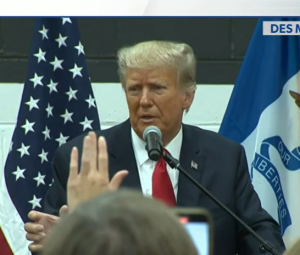President-elect
Joe Biden was confirmed winner of the November 3 election after the key swing
state of Pennsylvania was declared in his favour, taking his tally of electoral
college votes beyond the unassailable mark of 270. However, he did not immediately
become the 46th President of the United States as there remained one
more process to complete, the electoral college votes.
This year’s
electoral college vote, to be held on December 14, is a little extra significant as they represent the
final potential hurdle for President Donald Trump, who has refused to accept his loss
and has baselessly levelled accusations of electoral fraud, to try and prevent
Biden from replacing him at the White House.
The
electoral college is a system adopted by America’s founders that is like a
compromise between electing the leader of the country through a popular vote
and letting the Congress choose the President.
The US
Constitution allows each state a set number of electoral college votes, equal
to the number of seats each state has in the House of Representatives plus two senators.
So, the winner of the popular vote may not always win the White House, as has
happened five times in history and twice this century, in 2000 when George W
Bush won the presidency and in 2016, when Trump lost the popular vote to
Hillary Clinton but still emerged as the 45th US President.
Also Read | What’s the next step after US Election verdict?
Once the
popular vote decides which candidate wins a particular state, the electoral
college of the state meet at a place chosen by their legislature and almost always
gives all its votes to that candidate.
But there are exceptions.
Over 30
American states and the District of Columbia are required by law to cast their
electoral college votes in favour of the candidate who won the popular vote.
Also, state legislators can change their electors, but this needs to happen before the
election and not after, according to the Washington Post. Another route that
can be taken by the Grand Old Party (GOP) is to use the so called ‘faithless electors’, who are
electors that do not vote for the candidate they pledged their support to and either
vote for another candidate or abstain from voting.
However, faithless
electors are rare and mostly insignificant, as they do not change the course of
an election. They would have come in handy if the election was close, but Biden’s
lead of 306 electoral votes to Trump’s 232 means there needs to be a historic
revolt to keep the Democrat out of the White House.
Also Read | President-elect Joe Biden discusses top priorities for first 100 days
After the casting of the electoral college votes, they are sent to Congress and the votes
will be tallied in a session presided by Vice President Mike Pence on January
6, when both Houses convene. If there are objections raised regarding the
electoral votes, both Houses will debate the issue separately and if they vote
to sustain the objection, it will be taken up separately. But that is unlikely
as the Democrat-led House is unlikely to raise objections for Biden votes.
If no objections
are sustained and the votes are tallied, Biden will formally be inaugurated as the
46th US President in a traditional ceremony at the US Capitol Building
in Washington on January 20.







